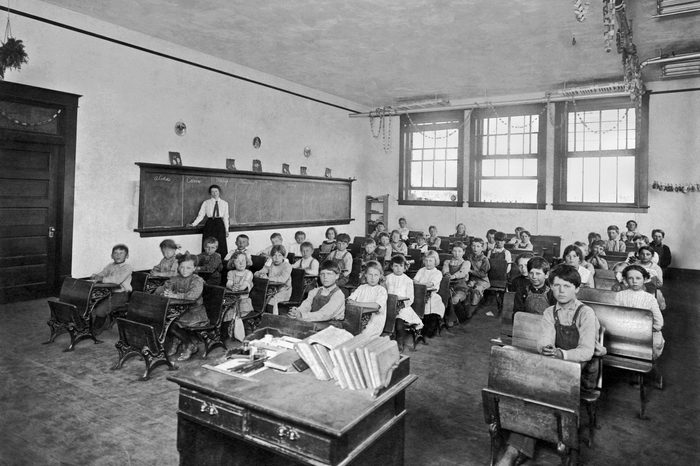I can see how separate but equal would be a viable option in education in today's society. But not through the concept of racial inequality that has been previously exploited in our history. In today's terms, separate but equal could be displayed in the context of grade levels: each student, no matter their level, is still an equal participating member within their school (not one student is superior or better than the other). Keeping students separate within respective grade levels of education encourages confinement within curriculum based learning. Each level has objectives to which they should achieve before they can move onto the next level of education. However, I'm not sure separate but equal will never be true in the context of race and education. I cannot even say that together and equal will be true. Once the trend of segregation and superiority begins, the likelihood of releasing that fad is not an easy feat. Because our country has practiced white supremacy for centuries, the stigma of racial superiority still lingers in the society we live in, no matter how many years later. Although the challenge to defeat this stigma is very much possible, it would take the adaptation of the minds of billions of people, not of whom all think alike and/or are willing to do so. Even in the 1950's, parents "went to the school board, they talked to the school board, they did everything that they could in order to get [the school board] to understand", so that all children could be deserving of equal and honest education (Mondale 135). However, the school board responded with a severe lack of urgency and claimed that although schools were separate, they were treated equally. It was obvious to the public, then and now, that the separation between schools was not even close to similar, not to mention equal. The process of desegregation was in desperate need to make its appearance, not just for "facilities and resources and the constitutional and moral reasons", but for the learning equality as well (Mondale 137). The schools and resources provided for students of color were unkempt, affecting the quality of education given to them. Lack of supplies cannot excuse the lack of education, for it only hinders it more, creating an environment with inequality in communities.
I think the education of any and all mistakes, no matter what context they are made in, is the only way to truly understand and recover from that mistake. It takes learning of said mistake to recognize where one as an individual, or where a society as a community went wrong. It also takes the recognition of one wrong mistake and the realization that the recovery could be applicable in other contexts. Learning from one's mistake is one thing. Realizing that another could be prevented takes critical thinking. The remembrance of prior mistakes to avoid another worldly catastrophe can only benefit the future. Because this course provides education on past mistakes, in this case racial and educational inequalities, I think it could be beneficial to other members of our society to take this course.
https://www.youtube.com/watch?v=9lsDJnlJqoY



